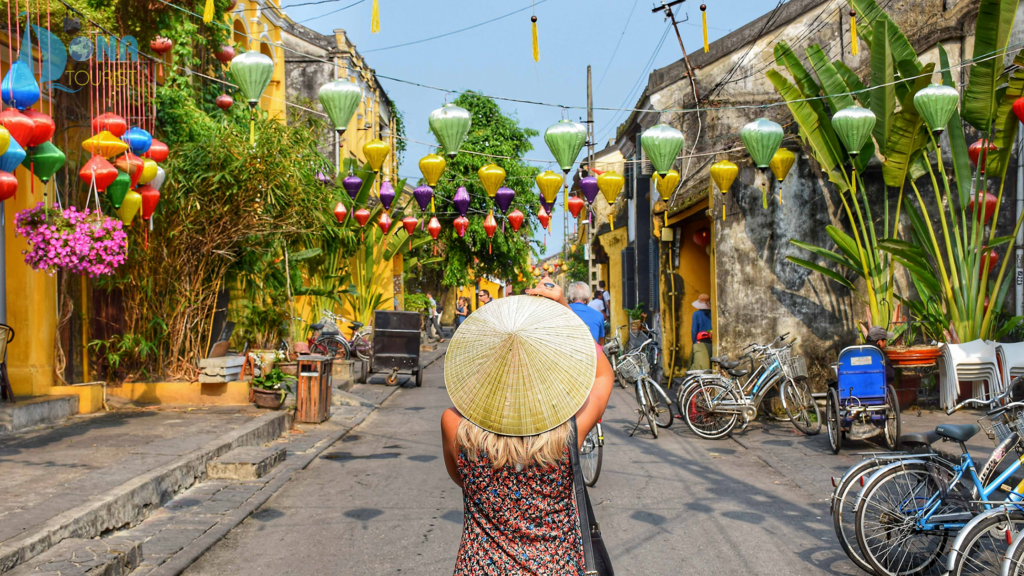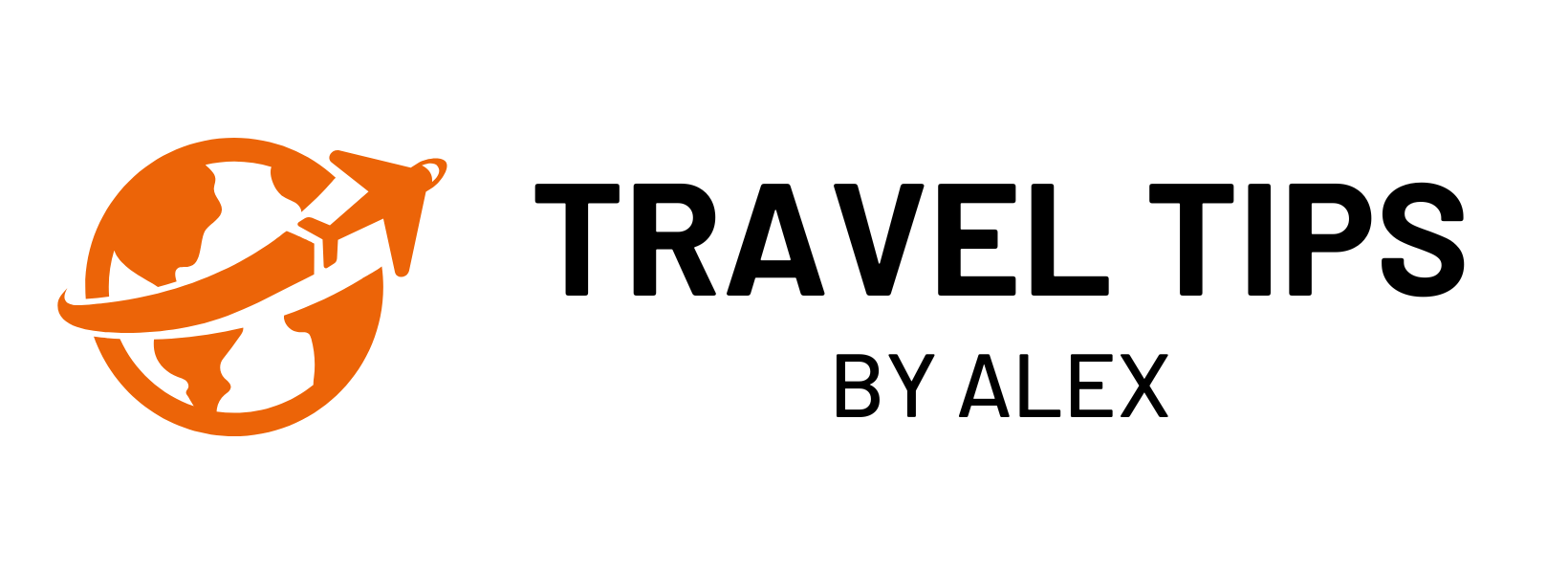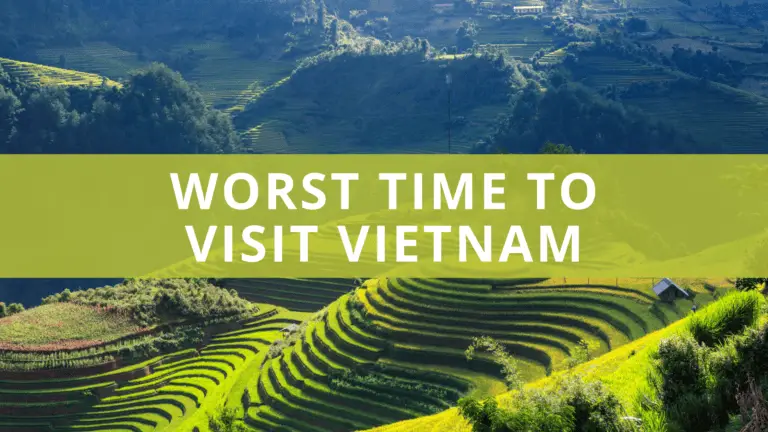What’s the Worst Time to Visit Vietnam – Plus 7 Top Tips
Are you considering visiting Vietnam but are concerned about timing your trip correctly? Vietnam is a beautiful country with a rich culture, delicious cuisine, and breathtaking landscapes. However, like any destination, there are times of the year when it’s better to visit than others.
In this article, I’ll share what I consider to be the worst time to visit Vietnam, as well as seven top tips for visiting during this time.
What’s the Worst Time to Visit Vietnam?
Vietnam has a tropical climate with two main seasons: the rainy season and the dry season. The rainy season typically runs from May to October, and the dry season from November to April. During the rainy season, you can expect heavy downpours and high humidity, which can make it less enjoyable to explore the country. This is why I consider the rainy season to be the worst time to visit Vietnam.
However, there are some advantages to visiting during this time. For one, the crowds are smaller, which can make it easier to find a quiet spot to relax. Additionally, prices for flights and accommodations tend to be lower during the rainy season, so you can save money on your trip.
Despite the less-than-ideal weather conditions, some travelers still choose to visit Vietnam during the rainy season. They do this for a variety of reasons, such as to avoid the peak-season crowds or to take advantage of the lower prices.

7 Top Tips for Visiting Vietnam During the Worst Time
If you’re planning to visit Vietnam during the rainy season, here are seven top tips to help make your trip a success.
1. Research the Weather in Advance
Before you go, research the weather conditions for the areas you plan to visit. This will help you to better prepare for your trip, as well as avoid any unpleasant surprises. Keep in mind that the weather can change quickly in Vietnam, so be prepared for anything.
2. Plan Your Itinerary Carefully
When planning your itinerary, take into account the weather conditions and try to avoid areas that are likely to be affected by heavy rainfall. Consider visiting cities like Hanoi, Ho Chi Minh City, or Hoi An, which tend to be less affected by the rain than other parts of the country.
3. Avoid Popular Tourist Destinations
If you’re looking to avoid the crowds, consider visiting less-traveled destinations. Some of the less popular destinations in Vietnam include the highlands of the Central Highlands, the beaches of Nha Trang, and the islands of Con Dao.
4. Take Advantage of Low-Season Discounts
During the rainy season, prices for flights and accommodations tend to be lower than during the dry season. Take advantage of these discounts and book your trip early to get the best deals.
5. Pack Appropriately for the Weather
When packing for your trip, make sure to bring appropriate clothing and gear for the weather conditions. This includes waterproof shoes and a raincoat, as well as lightweight, breathable clothing.
6. Don’t Limit Your Activities
Just because it’s raining doesn’t mean you can’t have a great time. There are plenty of indoor activities to enjoy, such as visiting museums, shopping, or trying the local cuisine.
7. Embrace the Local Culture
Finally, take the time to immerse yourself in the local culture. This is a great opportunity to learn about Vietnam’s rich history, meet the locals, and experience the country’s unique way of life. Try visiting local markets, taking cooking classes, or participating in traditional festivals. These are all great ways to truly get a feel for what life is like in Vietnam.
Frequently Asked Questions
Here are some frequently asked questions about visiting Vietnam during the rainy season.
Is it safe to travel during the rainy season in Vietnam?
Yes, it is generally safe to travel during the rainy season in Vietnam. However, you should be aware of the potential for heavy rainfall and flash floods, which can cause disruptions to your travel plans. Be sure to stay informed about the local weather conditions and take necessary precautions, such as carrying a raincoat and waterproof shoes.
Will my plans for outdoor activities be affected during the rainy season in Vietnam?
It’s possible that your plans for outdoor activities may be impacted by the weather during the rainy season. However, there are still many indoor activities to enjoy, such as visiting museums, trying local cuisine, or shopping. You can also opt to visit cities that tend to be less affected by the rain, such as Hanoi, Ho Chi Minh City, or Hoi An.
Is it cheaper to visit Vietnam during the rainy season?
Yes, it is often cheaper to visit Vietnam during the rainy season, as prices for flights and accommodations tend to be lower. This is a great opportunity to save money on your trip and take advantage of low-season discounts.
Are the crowds smaller during the rainy season in Vietnam?
Yes, the crowds tend to be smaller during the rainy season in Vietnam. This can make it easier to find a quiet spot to relax, as well as avoid long lines at popular tourist destinations.
Can I still enjoy local experiences during the rainy season in Vietnam?
Definitely! The rainy season is a great opportunity to immerse yourself in the local culture and experience the unique way of life in Vietnam. Try visiting local markets, taking cooking classes, or participating in traditional festivals to truly get a feel for the country.
Conclusion of the Worst Time to Visit Vietnam
Visiting during the worst time to visit Vietnam can have its challenges, but with a little preparation and the right attitude, it can still be a fantastic and memorable trip.
By researching the weather, planning your itinerary carefully, taking advantage of low-season discounts, and embracing the local culture, you can make the most of your time in this beautiful country.
Whether you’re looking to avoid the crowds, save money, or simply have a unique travel experience, visiting Vietnam during the rainy season is definitely worth considering.
- What to Wear in Cancun by Month & Activity (And Not!) - March 13, 2023
- What to Wear in New York by Month & Activity (And Not!) - March 13, 2023
- What to Wear in Morocco by Month & Activity (And Not!) - March 13, 2023

